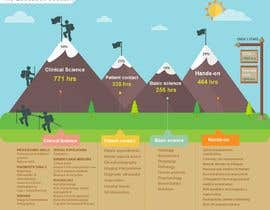Nutrition'S Effect On Back Pain Alleviation: Dietary Choices To Accept And Those To Avoid
Nutrition'S Effect On Back Pain Alleviation: Dietary Choices To Accept And Those To Avoid
Blog Article
Post Composed By-Livingston Lykke
When it involves handling your pain in the back, the food choices you make can considerably influence just how you feel daily. Picture having the ability to alleviate your pain merely by adjusting what you eat. By recognizing the duty of nutrition in back pain monitoring and recognizing which foods to include or steer clear of, you can take positive actions towards a much healthier and more comfy way of life. The connection between nourishment and back health and wellness is more extensive than you might understand-- let's check out exactly how particular foods can either soothe or intensify your pain in the back.
Relevance of Nourishment in Back Pain
Nutrition plays a vital duty in handling neck and back pain. Your diet can significantly impact swelling levels and general pain degrees in your back. Consuming a balanced diet regimen abundant in nutrients like vitamins D and K, calcium, magnesium, and omega-3 fatty acids can help in reducing swelling and strengthen bones, which are crucial for back wellness.
Furthermore, preserving a healthy weight through proper nutrition can reduce tension on your spine, minimizing the risk of neck and back pain.
Moreover, particular nutrients like antioxidants discovered in fruits and vegetables can help combat oxidative tension and advertise healing in the body, consisting of the back muscles and back.
On the other hand, consuming too much amounts of refined foods, sugary drinks, and undesirable fats can add to swelling and weight gain, worsening pain in the back.
Foods to Consume for Back Wellness
To support a healthy and balanced back, including nutrient-rich foods right into your day-to-day meals is essential. Including foods high in antioxidants like berries, spinach, and kale can help reduce inflammation in your back, relieving discomfort and pain. Omega-3 fatty acids found in fatty fish such as salmon and mackerel have anti-inflammatory residential or commercial properties that can benefit your back health and wellness.
Furthermore, eating nuts and seeds like almonds, walnuts, and chia seeds offers crucial nutrients like magnesium and vitamin E, which support muscle function and reduce oxidative anxiety. Including lean proteins such as hen, turkey, and tofu can assist in muscular tissue fixing and maintenance, advertising a solid back.
Do not fail to remember to include dairy or fortified plant-based options for calcium to sustain bone health. Finally, moisturize with lots of water to maintain your spinal discs hydrated and working efficiently. By including these nutrient-dense foods in your diet, you can nourish your back and support general back health.
Foods to Stay Clear Of for Neck And Back Pain
Go with avoiding processed foods high in added sugars and trans fats when seeking relief from back pain. https://www.wtvq.com/campbellsville-will-open-kentuckys-first-school-of-chiropractic/ of foods can contribute to swelling in the body, which may exacerbate neck and back pain. Say no to sugary treats sweet, pastries, and sugary drinks, along with fast food products like burgers, french fries, and fried poultry that are usually packed with trans fats.
Furthermore, steer clear of foods consisting of high levels of refined carbohydrates, such as white bread, pasta, and breads, as they can increase blood glucose degrees and potentially worsen inflammation in the body.
It's also important to limit your intake of foods high in hydrogenated fats, like red meat and full-fat milk items, as they can add to inflammation. Refined foods like deli meats, chips, and packaged treats are typically high in hydrogenated fats and ought to be eaten in moderation.
Verdict
Finally, focusing on your diet regimen and making smart food options can have a considerable impact on managing pain in the back. By integrating nutrient-rich foods like berries, fatty fish, nuts, and lean proteins, and staying clear of refined and sweet items, you can help in reducing swelling and assistance on the whole back health. Keep in mind, what you consume plays an essential role in how you feel, so make certain to prioritize your nutrition for a much healthier back.
